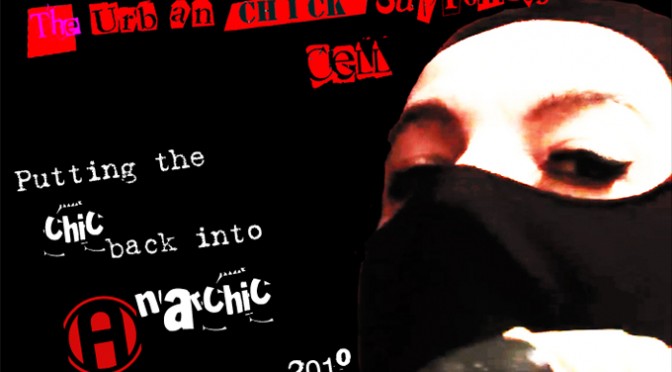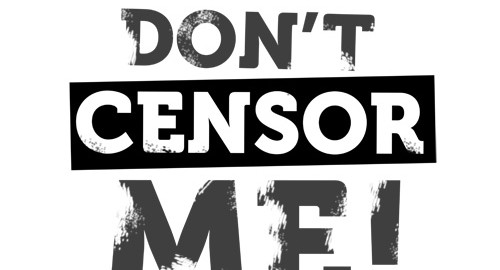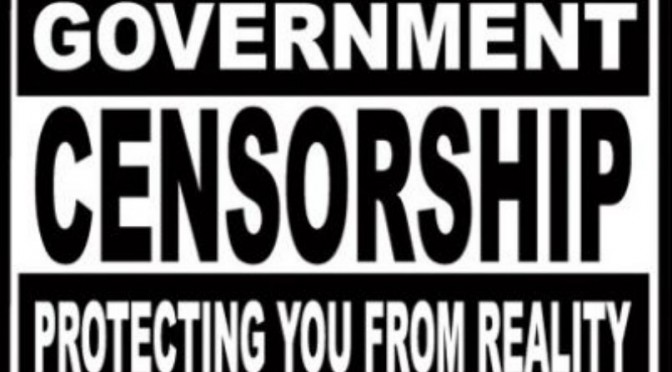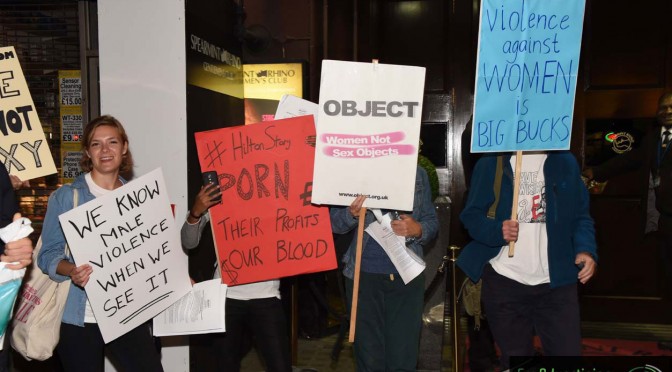This week’s news includes;
- Two leading supermarkets give in to pressure from campaign groups
- Aeveral changes to the regulation of video and on demand content in the UK are set to come into force December 1st and,
- Online retailer accused of selling “pro-rape” and “sexualised” clothing
Two leading supermarkets buckle under pressure from No More Page 3 and Child Eyes.
Tesco and Waitrose have conceded defeat and have announced that they will cover-up or remove from a ‘child’s line of vision’ tabloid newspapers.
Tesco told the BBC that their ‘news cubes’ would be redesigned so that only the mastheads would be visible to customers. While Waitrose said they would remove the tabloids from the eye level of small children.
The announcements come after months of campaigning by No More Page 3 and Child Eyes.
Tesco have claimed that they listened to both customers and campaigners (clearly only campaigners from one side of the debate) and wanted to “strike the right balance for everyone”.
Customer Experience & Insight Director Tracey Clements told the BBC:
“We are first and foremost a family retailer and it’s important we do everything we can to promote the right environment in store.”
Tesco says the changes to the display of tabloid newspapers (nothing about those celebrity mags that highlight cellulite on beach photos of celebrities though) will come into effect by the end of November, meaning newspapers will no longer be displayed vertically.
Waitrose tweeted:
“We’ve been working on this for some time and will soon be changing our newspaper fixtures so we can display some newspaper covers out of the eye line of children.”
No More Page 3 said it was “absolutely thrilled” the group added on their blog;
“It sends a very strong message to the tabloids that Tesco don’t think their front covers are appropriate material for display in a family-friendly environment, and that can only be a good thing in the long term.”
BBFC shakeup content classification guidelines ahead of amendments to the Audio Visual Media Services regulations.
The BBFC are to update the content classification guidelines and aim to define what they will and will not allow in a video works – online or off.
A dedicated post regarding the changes will follow soon.
Naturally there are some dubious clarifications such as face sitting is not allowed about choking on a penis will be.
As always, the guidelines are open to vast interpretation and mis-interpretation by both producers and BBFC examiners themselves.
They are essential reading for everyone involved in the production of video content, but especially for those producing adult content and more niche works such as BDSM and fetish video.
The guidelines will feed into what other regulatory bodies find acceptable such as ATVOD and OFCOM as they typically use ‘R-18 equivalent’ as the standard by which they judge.
Audio Visual Media Services (AVMS) regulations are to be amended, amendments will be enforceable from December 1st 2014.
The AVMS regulations which sets out statutory and legal obligations for media distributors has been amended to cap the content that can be distributed at R-18 level.
There are those in the adult entertainment industry who believe it has always been mandatory and a legal responsibility to put R-18 content behind a credit card only or age verification enabled pay wall. It has not been. It has only been mandatory for on demand service providers as determined by ATVOD.
Those deemed to not be an ODPS, such as those who have won an appeal based on their content not being TV-like, ATVOD’s initial judging criterion, were free to continue to distribute R-18 content without such a strict paywall or verification procedure.
This law now enshrines in law, for the first time, the responsibility for any person or company with editorial control in the UK distributing R-18 content. Not just those notified with ATVOD as an ODPS.
The amendments also introduce a new level of content deemed ‘unclassifiable’.
The regulations will make it a criminal offence to not adequately restrict access to R18 content.
So while – “Big Anal Hos Volume 76″ will be heavily restricted; Saw, Hostel, American Pie, Basic Instinct etc etc… will be freely available to under 18s.
From the act;
“(2) An on-demand programme service must not contain any prohibited material.
(3) “Prohibited material” means—
(a)a video work which the video works authority has determined for the purposes of the 1984 Act not to be suitable for a classification certificate to be issued in respect of it, or
(b)material whose nature is such that it is reasonable to expect that, if the material were contained in a video work submitted to the video works authority for a classification certificate, the video works authority would determine for those purposes that the video work was not suitable for a classification certificate to be issued in respect of it.
(4) An on-demand programme service must not contain any specially restricted material unless the material is made available in a manner which secures that persons under the age of 18 will not normally see or hear it.
(5) “Specially restricted material” means—
(a)a video work in respect of which the video works authority has issued a R18 classification certificate,
(b)material whose nature is such that it is reasonable to expect that, if the material were contained in a video work submitted to the video works authority for a classification certificate, the video works authority would issue a R18 classification certificate, or
(c)other material that might seriously impair the physical, mental or moral development of persons under the age of 18.
You can read the full document here: http://legislation.data.gov.uk/cy/uksi/2014/2916/made/data.htm?wrap=true
Online retailer, CafePress, criticised for selling ‘unacceptable’ and ‘sexualised’ baby clothing.
CafePress, an online retail site, stock clothing and other merchandise that have either been customised by a previous customer or which customers can customise for themselves.
They have been criticised for selling clothing that is apparently unacceptable and calls for it to be removed .
Some of the customised clothing available online includes; a bib with “F*** like a porn star” embroidered across it and a baby blanket with “Awesome masturbating” written across it.
Australian quality campaigners appear to be leading the objections and have said that they contacted Cafe Press over a year ago regarding similar clothing.
Campaigner Caitlin Roper, of women’s rights/religious group Collective Shout, told The Independent:
“This content serves to reinforce women’s second class status, as less than men, as mere objects for men’s entertainment and gratification.”
and she continues;
“I can’t believe I even have to argue that sexualised or porn-inspired imagery and slogans on baby clothes and merchandise is unacceptable,”
also adding that Cafe Press’s “pro-rape ‘humour’ trivialises crimes of violence against women,” and reduces such an issue to just a “punch line of a joke”.
The British version of the site currently offers 132 different baby clothing products under the category of ‘Adult Sex XXX Porn’.
The Australian version of the site offers many more different t-shirts and slogans, including a babygrow with “Porn star in training” written across it.
The site had previously offered a mug and T-Shirt with “no means yes, yes means anal” transcribed in large print across it. However that product seems to have now been removed.
Roper contacted Café Press on Twitter and claims their attitude was “staggering”. Saying;
“They suggested I redirect my energy and instead of tweeting I should fill out reports. I countered that they should exercise some corporate social responsibility and asked if they were going to pay me to do their job for them.”
The Daily Mail also picked up this story and published images of some of the ‘unacceptable’ clothing claiming them to be promoting peadophilia.



